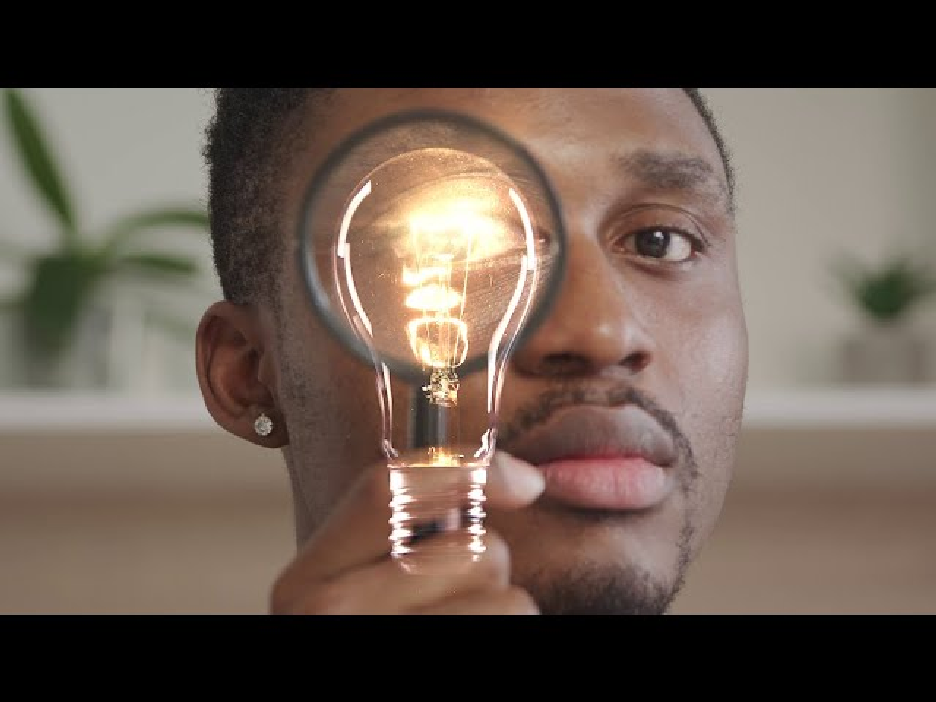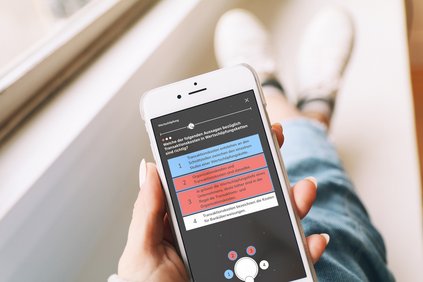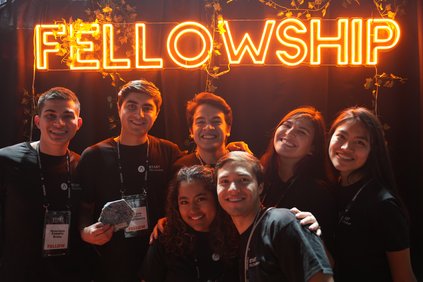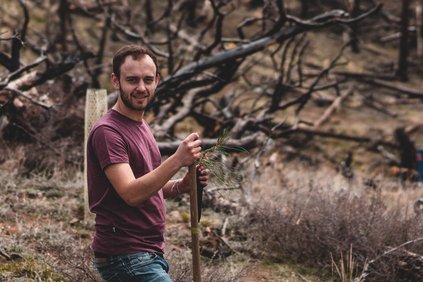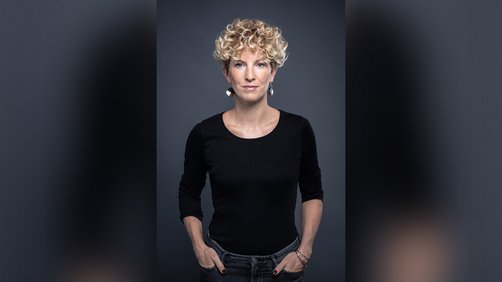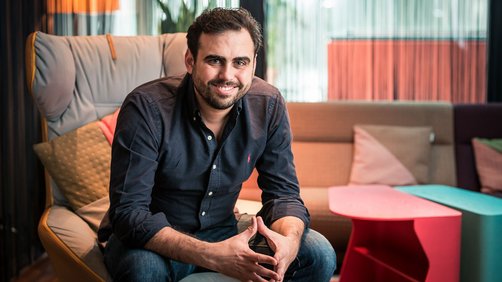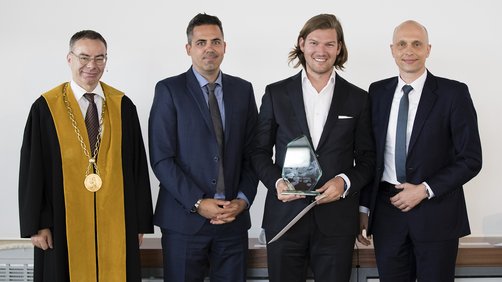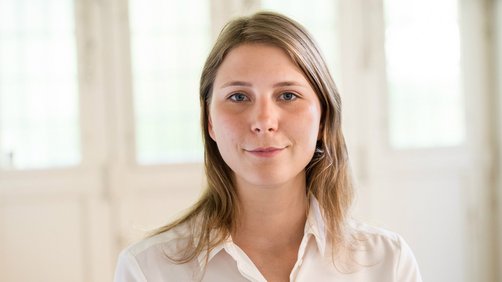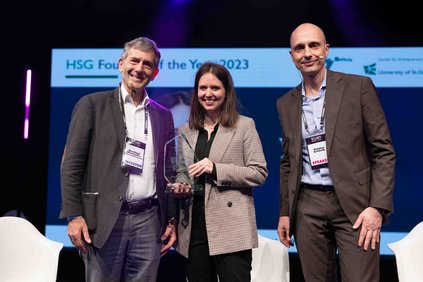Campus - 27.09.2023 - 11:00
"Success in entrepreneurship lies in the balance between intuition and rationality"
VIU Eyewear was founded in 2013 by the two HSG graduates Kilian Wagner and Peter Käser, along with Creative Founders Fabrice Aeberhard and Christian Kaegi, to disrupt the eyewear market. Co-Founder Kilian Wagner explains in the interview to what extent he and his business partners relied on their gut feeling during the founding process or took a more scientific approach.
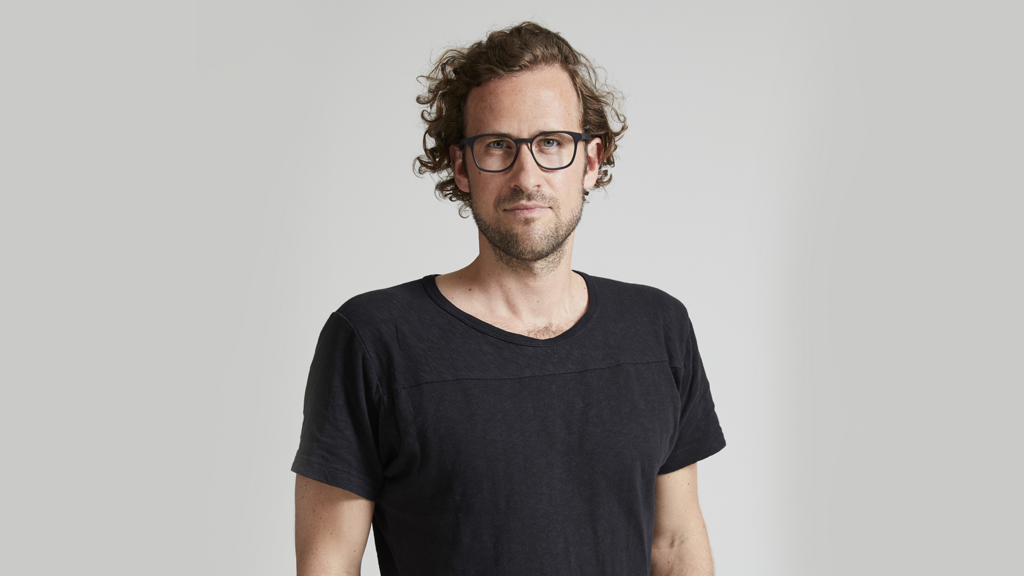
Co-Founder Kilian Wagner erklärt im Interview, inwieweit er und seine Geschäftspartner bei der Gründung auf das Bauchgefühl gehört haben oder doch eher wissenschaftlich vorgegangen sind.
Kilian Wagner, how did you come up with your business idea? Did you rely on intuition or did you pursue your business idea with a rational structure?
It was probably both. The emotional aspect was there because my co-founder Peter Käser was a glasses wearer himself at the time and often had bad experiences when buying glasses. He found that glasses were very expensive and found himself overwhelmed by various shapes and providers when he walked into a store. Buying glasses was often quite complex, and we said to ourselves that we needed to simplify the whole process.
And what was the rational side of your founding process?
At the time, we looked at various industries, and the eyewear market fascinated us. There's an incredible disparity here between the content and the cost of the product, which usually hovered around 600 Swiss francs. This is because there's an oligopoly on the side of eyewear manufacturers, facing a large number of small opticians who have to swallow the high prices. So, we said to ourselves, there needs to be a disruptor. We could be that disruptor by manufacturing our own glasses and selling them directly to end consumers.
What assumptions did you first make for your business idea?
Our plan was to produce the eyeglass frames in Italy and the lenses in Switzerland and then sell the entire pair of glasses for under 200 Swiss francs. And we assumed that customers would be willing to order the product online because it was much cheaper than most other glasses.
Did this assumption then prove to be correct?
Not entirely. We underestimated the disruption for customers during the purchase process when they could order glasses online but still had to have their eye test done at an optician's in a physical store. Moreover, trust was lacking at the beginning when people couldn't physically examine the glasses in one place. For these reasons, our purely online distribution didn't perform very well initially.
How did you respond to this?
After four months, we adjusted our business idea and opened a small store in Zurich on a trial basis, where we could display our self-produced glasses. This store was located directly in our office building, so we didn't have to make a risky investment to test the hypothesis that people still like to try on glasses in a store. And we were right. The store did really well, eventually leading us to become the omnichannel provider we are today with nearly 50 VIU stores.
In summary, what would you say: Is intuition or rationality more important in entrepreneurship?
In my view, the key to entrepreneurial success lies in finding the right balance between intuition and rationality. Every good business idea should have a rational basis, such as inefficient market structures that cry out for disruption or relevant customer needs that are not being met. At the same time, there will be various points in a startup where you have to make a bold hypothesis, which is again very intuitive, and you can only determine the result as positive or negative somewhat later. The most important thing in the end is not to become too attached to the initial idea of the first hour as an entrepreneur but to see a startup as the evolution of an idea to the perfect product-market fit. Once you've found that fit, it's time to scale!
Portraits of HSG start-ups
HSG Founder of the Year
The prize from the Werner Jackstädt Foundation is traditionally awarded every year at the START Summit.
